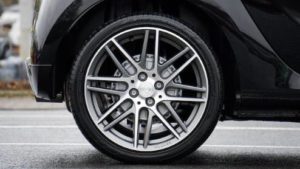
Upgrading your car’s wheels is a thrilling way to enhance its appearance and performance. Whether you’re a car enthusiast or simply looking to give your vehicle a fresh look, choosing the right set of wheels can make a significant difference.
However, many people make mistakes when buying new wheels, leading to disappointment, compatibility issues, or even safety concerns. It pays to explore common mistakes it’s best to avoid when purchasing new wheels for your car, ensuring a satisfying and trouble-free upgrade.
Neglecting Proper Sizing
One of the most fundamental mistakes is neglecting the proper sizing of wheels. Wheels come in various sizes, including diameter, width, and offset. Failing to choose the right size can lead to a host of problems, such as rubbing against the fenders, affecting the speedometer accuracy, and compromising the vehicle’s handling. Always consult your vehicle’s manufacturer specifications or seek professional advice to determine the correct wheel size for your car.
Overlooking Bolt Pattern Compatibility
Bolt pattern compatibility is crucial when selecting new wheels. The bolt pattern determines how the wheels attach to the vehicle’s hubs. Choosing wheels with a bolt pattern that doesn’t match your car’s can result in an improper fit, making them unusable. Measure your vehicle’s bolt pattern carefully, and cross-reference it with the wheel specifications to ensure compatibility.
Disregarding Offset and Backspacing
Ignoring the offset and backspacing of wheels can lead to fitment issues. Offset refers to how far the mounting surface of the wheel is from its centerline. Backspacing is the distance between the mounting surface and the wheel’s inner edge. These measurements affect how the wheels sit within the wheel wells. An incorrect offset or backspacing can cause the wheels to stick out too far or be tucked too close to the vehicle’s body, impacting handling and looks.
Sacrificing Functionality for Aesthetics
While aesthetics play a significant role in wheel selection, not sacrificing functionality for looks is essential. Some oversized or excessively wide wheels may look impressive but can negatively affect the vehicle’s handling, ride comfort, and performance. Always consider how your choice of wheels will impact your car’s overall performance, especially if it’s a daily driver. Keep in mind, too, that you can find plenty of good-looking yet quality wheels on offer online these days, such as the range of Option Lab wheels and those from numerous other brands.
Not Considering Weight
The weight of the wheels can impact your car’s acceleration, braking, and fuel efficiency. Lightweight wheels are often preferred for performance and efficiency. On the other hand, some people opt for heavier wheels due to their durability or style. Consider the trade-offs and choose wheels that strike the right balance between weight and performance for your specific needs.
Not Considering Tire Compatibility
Wheels and tires go hand in hand, and their compatibility is paramount. When choosing new wheels, take into account the tire size and type you plan to use. Make sure the wheels can accommodate your preferred tires without any issues. Different wheel sizes and widths may require specific tire sizes and profiles for optimal performance.
Ignoring Local Regulations
Local regulations can dictate what types of wheels and tire modifications are allowed on your vehicle. Some regions have restrictions on wheel sizes, offsets, and modifications for safety and environmental reasons. Ignoring these regulations can lead to legal issues and inspection failures. Be aware of local laws and ensure your wheel and tire choices comply.
Not Factoring in Cleaning
Some wheel designs are more intricate and challenging to clean than others. Neglecting to consider cleaning requirements can lead to frustration down the road. Highly detailed or complex wheel designs may require extra time and effort to keep clean, which may not be suitable for everyone. Choose a design that aligns with your willingness to maintain the wheels’ appearance.
Rushing the Decision-Making Process
Impulsively rushing into a wheel purchase is a common mistake. Take your time to research, compare options, read Tire Reviews, and consult professionals or fellow car enthusiasts. Rushed decisions can lead to regrets, especially when there are numerous wheel styles, finishes, and brands to choose from. Consider your preferences, budget, and the intended use of your vehicle before making a decision.
Overlooking Wheel Warranty and Customer Support
Before finalizing your purchase, check the wheel manufacturer’s warranty and their (or the retailer’s) customer support policies. A reputable manufacturer should offer warranties that cover structural defects and workmanship. Also, ensure the company provides adequate customer support in case you encounter issues or have questions about your wheels.

Selecting new wheels for your car is an exciting opportunity to customize your vehicle’s appearance and performance. However, avoiding common mistakes in the wheel-buying process is essential to ensure a satisfying and trouble-free upgrade. Patience and research are your allies in finding the perfect wheels that align with your preferences and driving needs.